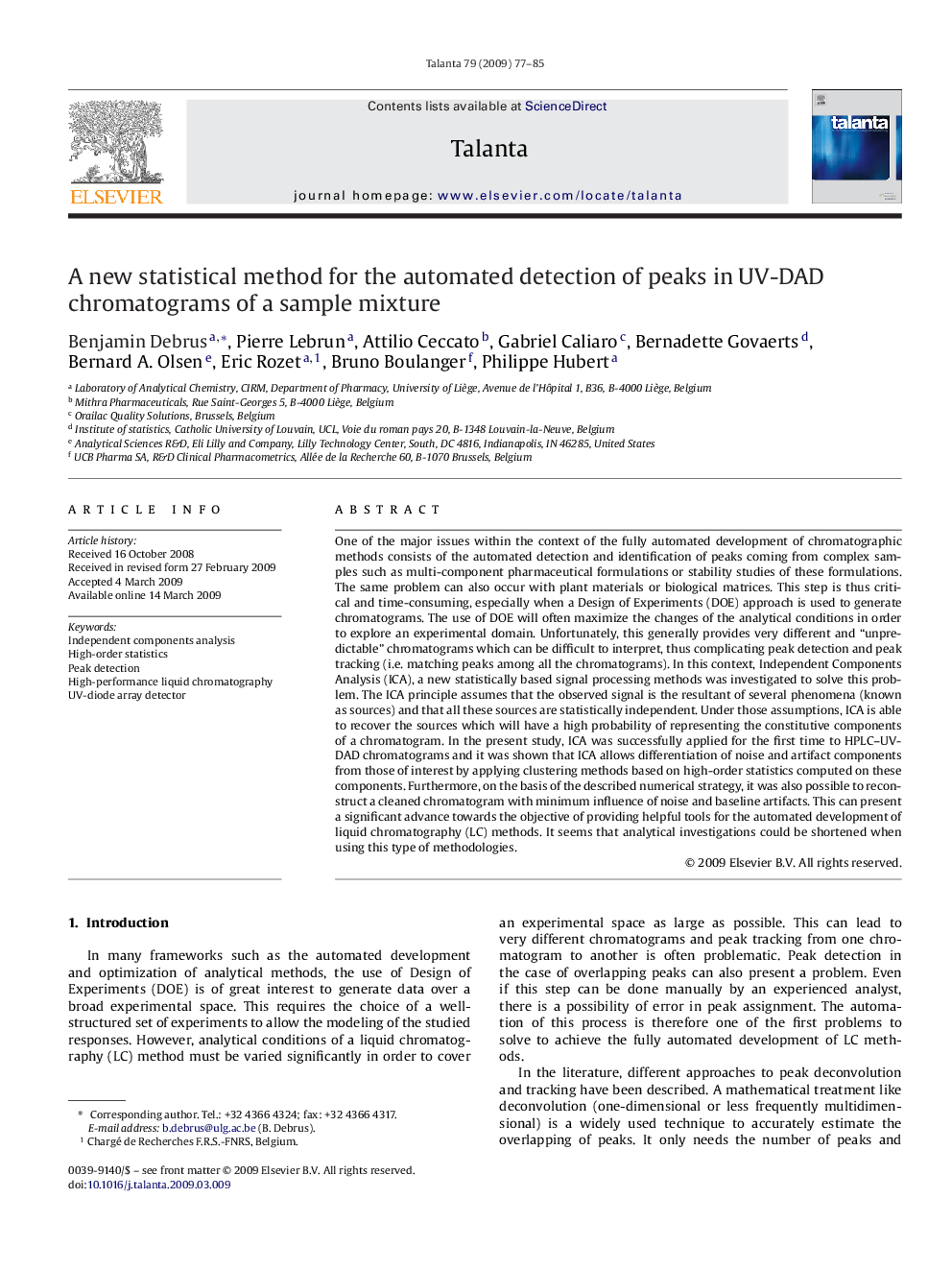| Article ID | Journal | Published Year | Pages | File Type |
|---|---|---|---|---|
| 1242883 | Talanta | 2009 | 9 Pages |
One of the major issues within the context of the fully automated development of chromatographic methods consists of the automated detection and identification of peaks coming from complex samples such as multi-component pharmaceutical formulations or stability studies of these formulations. The same problem can also occur with plant materials or biological matrices. This step is thus critical and time-consuming, especially when a Design of Experiments (DOE) approach is used to generate chromatograms. The use of DOE will often maximize the changes of the analytical conditions in order to explore an experimental domain. Unfortunately, this generally provides very different and “unpredictable” chromatograms which can be difficult to interpret, thus complicating peak detection and peak tracking (i.e. matching peaks among all the chromatograms). In this context, Independent Components Analysis (ICA), a new statistically based signal processing methods was investigated to solve this problem. The ICA principle assumes that the observed signal is the resultant of several phenomena (known as sources) and that all these sources are statistically independent. Under those assumptions, ICA is able to recover the sources which will have a high probability of representing the constitutive components of a chromatogram. In the present study, ICA was successfully applied for the first time to HPLC–UV-DAD chromatograms and it was shown that ICA allows differentiation of noise and artifact components from those of interest by applying clustering methods based on high-order statistics computed on these components. Furthermore, on the basis of the described numerical strategy, it was also possible to reconstruct a cleaned chromatogram with minimum influence of noise and baseline artifacts. This can present a significant advance towards the objective of providing helpful tools for the automated development of liquid chromatography (LC) methods. It seems that analytical investigations could be shortened when using this type of methodologies.
